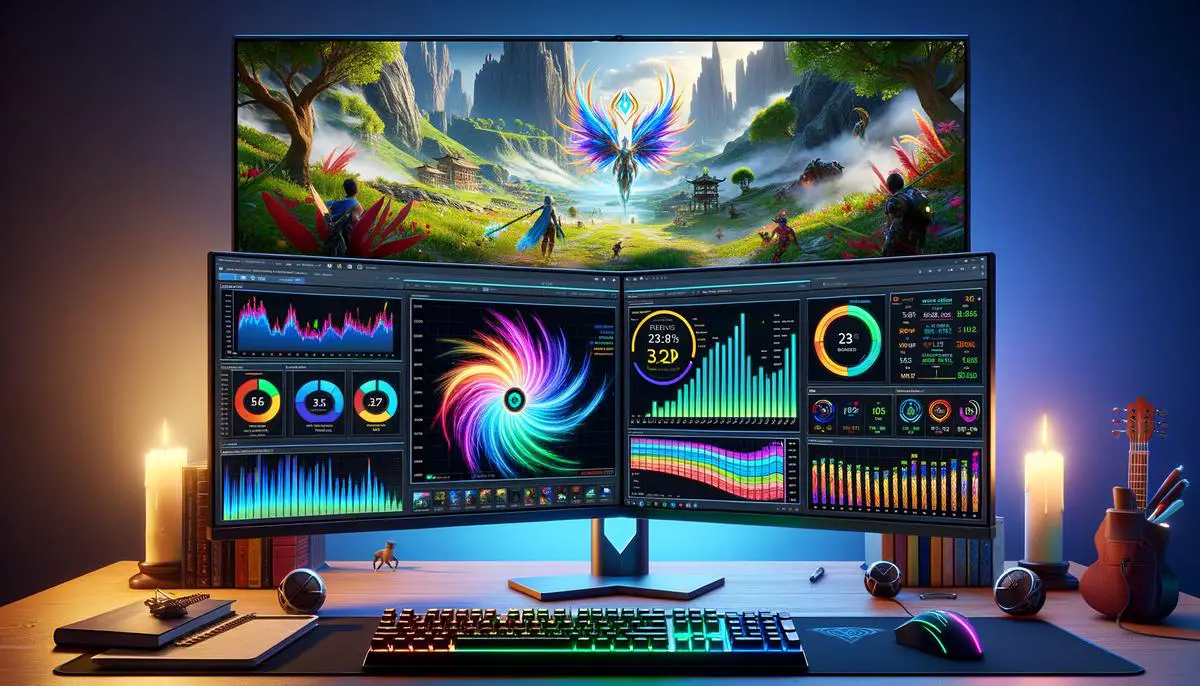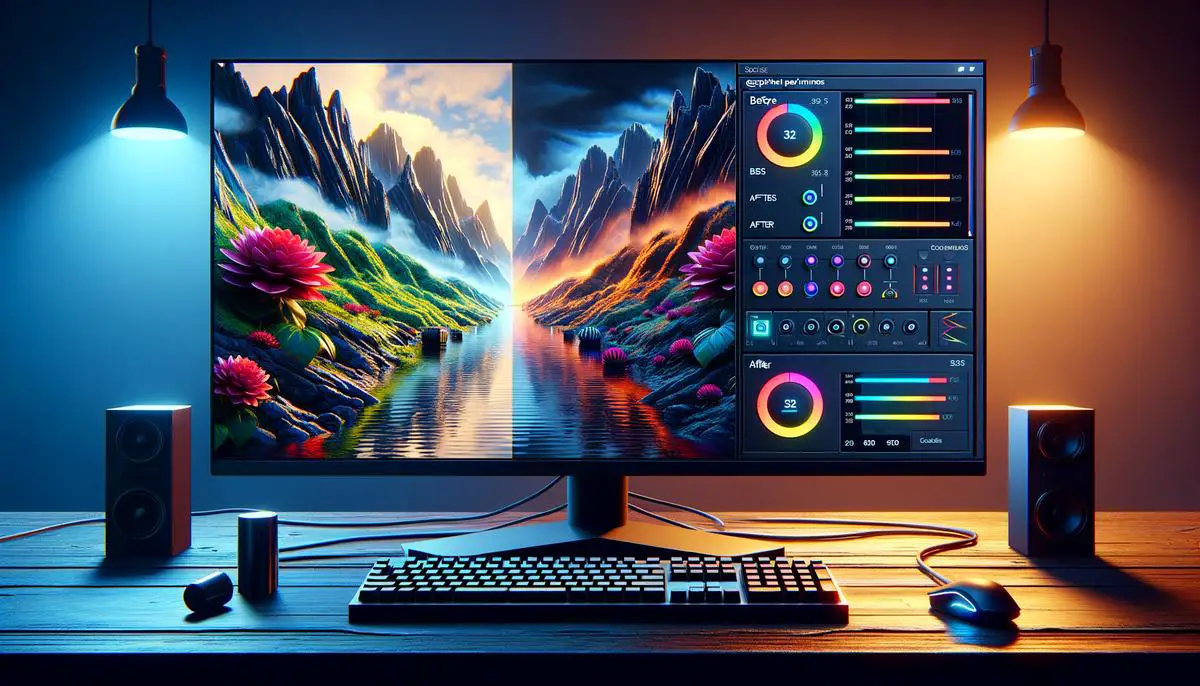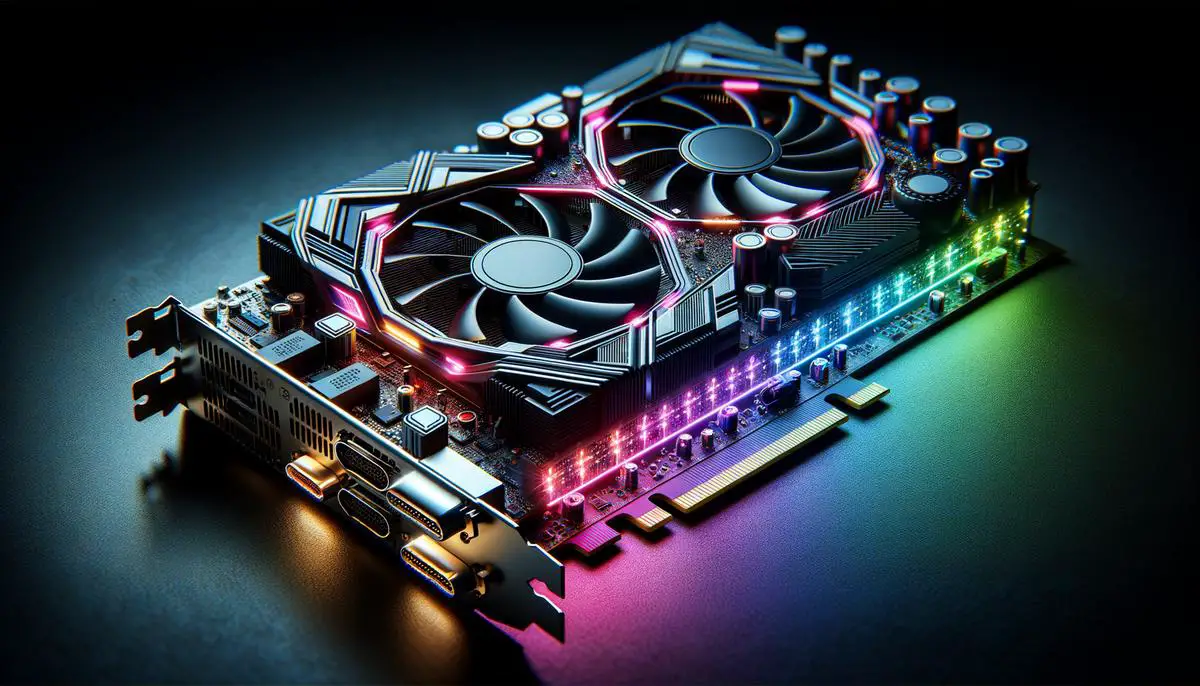When it comes to enhancing the gaming experience on a PC, the choice of graphics card tuning software can make a significant difference. Among the numerous options available, Rivatuner and EVGA Precision XOC stand out for their unique features and interface designs. This article aims to explore how these two software solutions compare in offering gamers the tools they need to optimize their graphics card’s performance. With a focus on usability, performance, and community support, we will shed light on what makes each option appealing to different types of users.
Features and User Interface
Rivatuner vs. EVGA Precision XOC: A Deep Dive into Features and Usability
In the realm of PC gaming, graphics card tuning software plays a pivotal role in enhancing gaming experience and performance. Two of the most popular options are Rivatuner and EVGA Precision XOC. Both offer gamers the ability to overclock their graphics card, monitor performance, and much more. But how do they stack up against each other in terms of features and usability? Let’s explore.
Starting with Rivatuner, it’s renowned for its deep customization options and robust monitoring capabilities. Rivatuner allows users to fine-tune several aspects of their GPU, including core clock speeds, fan speeds, and memory clocks. Its interface, though comprehensive, can be daunting for beginners. However, its extensive array of features makes it a favorite among enthusiasts who want maximum control over their hardware.
Rivatuner also includes an in-game overlay feature, enabling gamers to see real-time stats such as frame rates and temperatures while playing. This can be incredibly useful for gauging the impact of different settings on game performance. Despite its power, the complexity of Rivatuner’s interface and settings may not be the best fit for those new to GPU overclocking or monitoring.
On the other side, EVGA Precision XOC stands out with its user-friendly approach while still offering a high degree of functionality. Designed specifically for GPUs from EVGA, Precision XOC features a clean, intuitive interface that simplifies the process of adjusting your graphics card’s performance parameters. It offers easy access to overclocking sliders, temperature targets, and fan speed controls.
EVGA Precision XOC also includes unique features like the ability to update EVGA graphics card firmware directly from the software and an automatic tuning feature that finds a stable overclocking setting with a single click. Its usability doesn’t come at the expense of functionality, as the software still provides detailed monitoring and an in-game overlay for tracking performance metrics.
When comparing usability, EVGA Precision XOC is the more accessible of the two, particularly for beginners or those who prefer a streamlined experience. Rivatuner, while potentially intimidating, rewards those who take the time to learn its ins and outs with an unparalleled depth of control over their GPU settings.
In conclusion, both Rivatuner and EVGA Precision XOC offer compelling features for gamers looking to get the most out of their graphics card. Your choice between them will likely hinge on your level of experience with tuning software and whether you prioritize deep customization (Rivatuner) or ease of use and specific support for EVGA GPUs (Precision XOC). Each brings something unique to the table, ensuring that between the two, there’s a tool that will meet the needs of virtually any PC gamer.

Performance and Compatibility
Let’s delve deeper into how Rivatuner and EVGA Precision XOC affect both gaming performance and software compatibility, essential an aspect that avid PC gamers and hardware enthusiasts should not overlook.
Starting with gaming performance, these tuning tools play a critical role. Rivatuner, known for its depth in customization options, allows gamers to push their graphics cards to the limit. By enabling users to fine-tune the clock speeds, voltage, and fan speeds, Rivatuner can significantly enhance gaming performance. This potential uplift in frame rates and overall smoothness in gameplay comes at the cost of increased power consumption and heat generation, aspects that Rivatuner’s detailed monitoring features help manage efficiently.
Similarly, EVGA Precision XOC offers functionalities aimed at boosting gaming experiences. Its automatic tuning feature stands out by intelligently finding the optimal balance between performance and temperature, essentially doing the heavy lifting for the user. This means gamers can achieve improved performance without the need to understand the nitty-gritty details of overclocking, making it particularly appealing to those who may be new to this aspect of PC gaming.
However, the enhancements in gaming performance do not come without their challenges, particularly in terms of software compatibility. Rivatuner’s comprehensive nature means that it can, at times, conflict with other software running in the background. This includes anti-cheat systems implemented in many competitive games, which might misinterpret Rivatuner’s in-game overlay and monitoring as potentially malicious. Although updates and fixes are continually rolled out to address these issues, they represent a recurring hurdle for gamers.
EVGA Precision XOC, while generally less intrusive due to its design and collaboration with game developers, is not entirely free from compatibility issues. Its specific ties to EVGA graphics cards mean that users with GPUs from other manufacturers might not experience the software’s full potential, limiting its universal appeal.
Moreover, the impact on software compatibility extends beyond gaming. Both Rivatuner and EVGA Precision XOC require substantial system resources to run, especially when engaging in real-time monitoring or on-the-fly tuning. This can lead to decreased performance in other software applications or, in extreme cases, system instability.
It’s crucial for users to weigh these considerations carefully. While Rivatuner and EVGA Precision XOC can significantly boost gaming performance, ensuring a seamless and stable operation requires a balanced approach. Both regular software updates from the developers to address compatibility issues and a cautious tuning process by the users are essential to maximizing the benefits while minimizing potential setbacks.
Understanding the dual impact of Rivatuner and EVGA Precision XOC on both gaming performance and software compatibility provides a holistic view of how these tools fit into the broader PC gaming ecosystem. As gamers seek to maximize their hardware’s capabilities, acknowledging and navigating the complexities associated with these powerful tuning software options becomes a vital part of the optimization process.

Advanced Features and Customization
To further dive into the intricate world of graphics card tuning for seasoned gamers, understanding the advanced features and customization options Rivatuner and EVGA Precision XOC provide becomes essential. These options not just cater to the aesthetic appeal but significantly enhance gaming performance, making informed tweaking a game-changer.
Diving deeper into Rivatuner, it becomes apparent that its strengths lie beyond mere customization. Rivatuner allows for an in-depth adjustment of the GPU’s memory timings, a feature that can drastically improve performance in memory-bound scenarios. This level of granular control enables gamers to push their hardware beyond conventional limits, extracting every ounce of power from their graphics cards.
On the other hand, EVGA Precision XOC brings an intuitive feature to the table – the K-Boost function. K-Boost ensures that the GPU runs at its maximum boost clock at all times during gaming, eliminating any potential performance dips that could occur due to varying load conditions. This constant peak performance mode can be a boon for gamers seeking the smoothest possible gaming experience.
Moreover, EVGA Precision XOC stands out with its unique LED customization. Gamers can personalize their graphics card’s lighting to match their gaming rig or mood, adding an extra layer of personalization to their gaming setup. This feature, while not directly impacting performance, enhances the overall gaming atmosphere, contributing to a more immersive experience.
Rivatuner counters with its comprehensive system monitoring capabilities. It supports a wide range of systems and hardware metrics, including but not limited to GPU temperatures, usage, and clock speeds, as well as CPU temperatures and usage. For gamers who love to analyze and optimize their system’s performance, Rivatuner provides all the necessary data at their fingertips. This data can be crucial for making minute adjustments to achieve the perfect balance between performance and system stability.
Both Rivatuner and EVGA Precision XOC offer detailed fan control mechanisms. These allow gamers to create custom fan curve profiles, ensuring that their graphics card stays cool under load without unnecessary noise. Fine-tuning fan speeds based on personal preference and specific gaming scenarios can lead to a quieter and more comfortable gaming environment.
In conclusion, Rivatuner and EVGA Precision XOC cater to the nuanced needs of seasoned gamers through their advanced features and customization options. Whether it’s Rivatuner’s memory timing adjustments and comprehensive system monitoring or EVGA Precision XOC’s K-Boost for sustained peak performance and LED customization, both software packages offer unique tools to enhance and personalize the gaming experience. Balancing these powerful tools with the need for system stability and reliability, gamers can achieve unparalleled performance and truly make the most of their gaming rigs.

Community Support and Resources
Delving further into the role of communities around two leading graphics card tuning software, Rivatuner and EVGA Precision XOC, it’s evident how passionate user groups significantly amplify the software’s utility and the overall gaming experience. These enthusiast communities, thriving on forums, social media, and dedicated support sites, play a pivotal part in shaping the software’s evolution and in assisting users to harness their full potential.
One of the key areas where community engagement shines is through the sharing of custom profiles and tuning tips. Experienced users often publish their settings for various games and graphics cards, allowing newcomers to optimize their gaming setups swiftly. This practice not only helps in achieving higher frame rates and smoother gameplay but also in maintaining system stability, a critical concern when overclocking.
Furthermore, the feedback loop between the developers of Rivatuner and EVGA Precision XOC and their user communities cannot be overstated. Users’ experiences, bug reports, and feature requests often guide software updates and improvements. This two-way communication ensures that the software remains at the forefront of what gamers need and want, including compatibility with the latest games and hardware.
DIY troubleshooting and problem-solving stand out as another hallmark of these communities. Given the technical nature of graphics card tuning, users occasionally encounter issues ranging from minor glitches to conflicts with other software. Community forums and guides are invaluable resources where users can find solutions or workarounds contributed by others who have faced similar challenges. This collective wisdom serves as a comprehensive support system that complements the official customer service.
Tutorial and guide creators within the community deserve a special mention. They often produce detailed content, including videos and written guides, covering everything from basic tuning to advanced customization techniques. For those looking to understand GPU memory timing adjustments in Rivatuner or the nuances of the K-Boost function in EVGA Precision XOC, these resources are gold mines. They not only make these sophisticated tools more accessible to a broader audience but also encourage users to experiment and explore new ways to enhance their gaming experience.
Lastly, the communities around Rivatuner and EVGA Precision XOC foster a shared sense of identity and belonging among PC gaming enthusiasts. The shared goal of pushing hardware to its limits while maintaining system health creates a unique bond. Celebrating successes, such as achieving a personal best in frame rates, or collaboratively addressing a widespread compatibility issue, reinforces the camaraderie within these communities.
In essence, the vibrant communities that have grown around Rivatuner and EVGA Precision XOC are indispensable to both the software’s development and the end-user experience. By facilitating knowledge exchange, encouraging innovation, and providing a supportive environment, these communities significantly enhance the value of graphics card tuning software, making advanced PC gaming optimization more accessible and rewarding for everyone involved.

At the heart of PC gaming optimization, the debate between Rivatuner and EVGA Precision XOC encapsulates the broader considerations of personal preference, technical expertise, and brand loyalty. Each software has carved out its niche, offering a suite of features that cater to both the enthusiastic tinkerer and the gamer seeking simplicity and direct results. The vibrant communities that surround Rivatuner and EVGA Precision XOC are testament to their impact, not just as tools for enhancing gaming performance, but as platforms that bring together individuals united by their passion for pushing the boundaries of PC gaming. As gamers continue to explore the capabilities of their hardware, the choice between Rivatuner and EVGA Precision XOC will remain a cornerstone of their optimization arsenal.
- Guide to Life Is Strange: True Colors Ch. 1 Choices - April 4, 2024
- Catching Spiritomb in Pokemon BDSP - April 4, 2024
- Mastering Life Is Strange: Key Choices in Chapter 1 - April 4, 2024
Visits: 1









